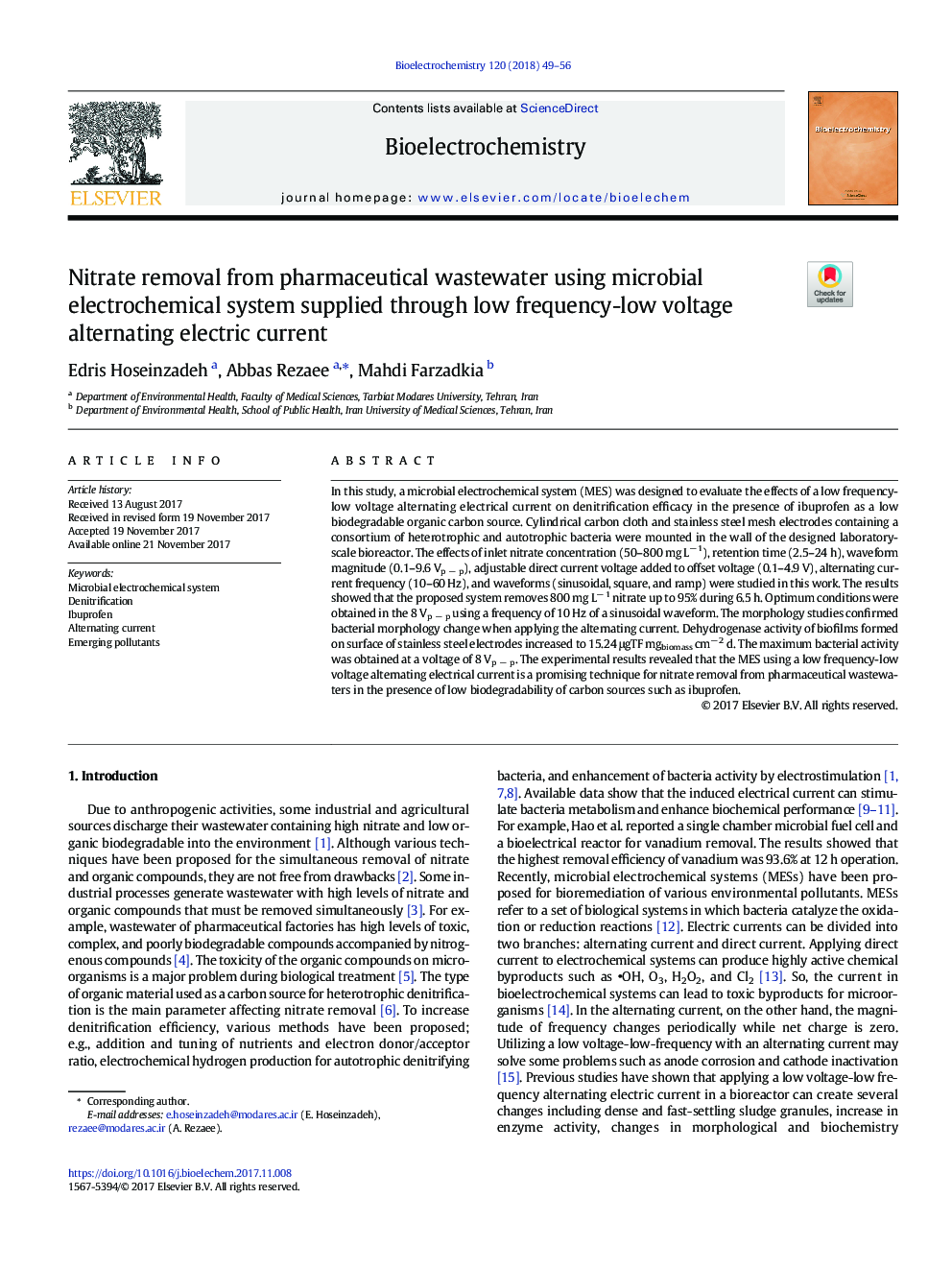| Article ID | Journal | Published Year | Pages | File Type |
|---|---|---|---|---|
| 7704730 | Bioelectrochemistry | 2018 | 8 Pages |
Abstract
In this study, a microbial electrochemical system (MES) was designed to evaluate the effects of a low frequency-low voltage alternating electrical current on denitrification efficacy in the presence of ibuprofen as a low biodegradable organic carbon source. Cylindrical carbon cloth and stainless steel mesh electrodes containing a consortium of heterotrophic and autotrophic bacteria were mounted in the wall of the designed laboratory-scale bioreactor. The effects of inlet nitrate concentration (50-800 mg Lâ 1), retention time (2.5-24 h), waveform magnitude (0.1-9.6 Vp â p), adjustable direct current voltage added to offset voltage (0.1-4.9 V), alternating current frequency (10-60 Hz), and waveforms (sinusoidal, square, and ramp) were studied in this work. The results showed that the proposed system removes 800 mg Lâ 1 nitrate up to 95% during 6.5 h. Optimum conditions were obtained in the 8 Vp â p using a frequency of 10 Hz of a sinusoidal waveform. The morphology studies confirmed bacterial morphology change when applying the alternating current. Dehydrogenase activity of biofilms formed on surface of stainless steel electrodes increased to 15.24 μgTF mgbiomass cmâ 2 d. The maximum bacterial activity was obtained at a voltage of 8 Vp â p. The experimental results revealed that the MES using a low frequency-low voltage alternating electrical current is a promising technique for nitrate removal from pharmaceutical wastewaters in the presence of low biodegradability of carbon sources such as ibuprofen.
Keywords
Related Topics
Physical Sciences and Engineering
Chemistry
Electrochemistry
Authors
Edris Hoseinzadeh, Abbas Rezaee, Mahdi Farzadkia,
